
The Enigmatic Charm of Islamic Cairo
Islamic Cairo, also known as Historic Cairo, is a treasure trove of history and culture nestled in the heart of Egypt's bustling capital. This neighbourhood is a living museum, showcasing over a thousand years of Islamic art, architecture, and traditions. The narrow, winding streets are filled with the intoxicating aroma of spices and the sound of the call to prayer, offering an immersive experience for all your senses. One of the highlights of Islamic Cairo is the Al-Azhar Mosque, one of the oldest universities in the world. The intricate details of its architecture and the serene ambiance make it a must-visit. Nearby, the Khan El Khalili bazaar is a labyrinth of shops and stalls where you can find everything from exotic perfumes to intricate jewelry. It’s a perfect spot for souvenir hunting and to witness the daily life of Cairo's residents. The Citadel of Saladin offers panoramic views of the city and houses the stunning Mosque of Muhammad Ali, also known as the Alabaster Mosque. This iconic structure is a testament to the grandeur of Islamic architecture and provides a peaceful retreat from the bustling streets below. Don't miss the Sultan Hassan Mosque, a masterpiece of Mamluk architecture, known for its grand scale and intricate details. Exploring Islamic Cairo is like stepping back in time. The atmosphere is vibrant, yet steeped in history, making it an unforgettable experience for any traveler.
Local tips in Islamic Cairo
- Wear comfortable shoes, as the streets are narrow and often uneven.
- Visit early in the morning to avoid the crowds, especially at popular sites like Al-Azhar Mosque and Khan El Khalili.
- Carry some cash, as many small vendors in the bazaar do not accept credit cards.
- Dress modestly out of respect for the local culture and religious sites.
- Hire a local guide to enrich your understanding of the history and significance of the various sites.
The Enigmatic Charm of Islamic Cairo
Islamic Cairo, also known as Historic Cairo, is a treasure trove of history and culture nestled in the heart of Egypt's bustling capital. This neighbourhood is a living museum, showcasing over a thousand years of Islamic art, architecture, and traditions. The narrow, winding streets are filled with the intoxicating aroma of spices and the sound of the call to prayer, offering an immersive experience for all your senses. One of the highlights of Islamic Cairo is the Al-Azhar Mosque, one of the oldest universities in the world. The intricate details of its architecture and the serene ambiance make it a must-visit. Nearby, the Khan El Khalili bazaar is a labyrinth of shops and stalls where you can find everything from exotic perfumes to intricate jewelry. It’s a perfect spot for souvenir hunting and to witness the daily life of Cairo's residents. The Citadel of Saladin offers panoramic views of the city and houses the stunning Mosque of Muhammad Ali, also known as the Alabaster Mosque. This iconic structure is a testament to the grandeur of Islamic architecture and provides a peaceful retreat from the bustling streets below. Don't miss the Sultan Hassan Mosque, a masterpiece of Mamluk architecture, known for its grand scale and intricate details. Exploring Islamic Cairo is like stepping back in time. The atmosphere is vibrant, yet steeped in history, making it an unforgettable experience for any traveler.
Iconic landmarks you can’t miss
Khan el-Khalili
Explore Cairo's historic Khan el-Khalili bazaar: a vibrant marketplace with centuries of culture, unique treasures, and captivating atmosphere.
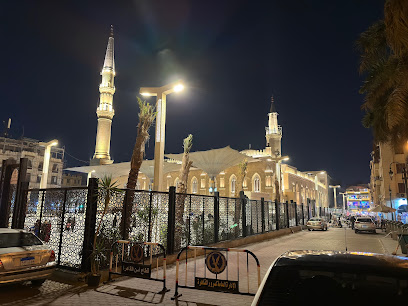
Al-Azhar Park
Discover Al-Azhar Park: Cairo's green escape with stunning views, historic gardens, and tranquil atmosphere in the heart of the city.

قلعة صلاح الدين الأيوبي
Explore the Cairo Citadel: a historic fortress with mosques, museums, and panoramic views of Cairo, showcasing centuries of Egyptian history and architecture.
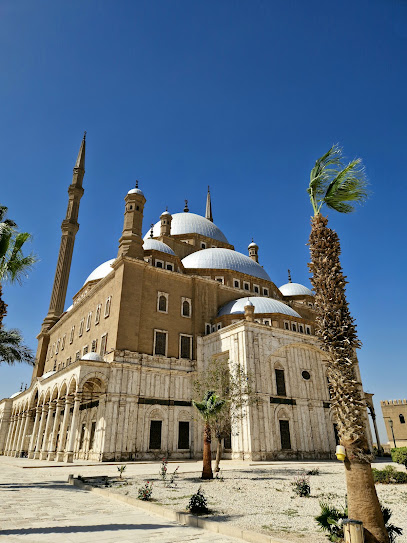
Cairo Tower
Experience Cairo from Above: Iconic tower with panoramic views, revolving restaurant, and a glimpse into Egypt's modern history and ancient symbolism.
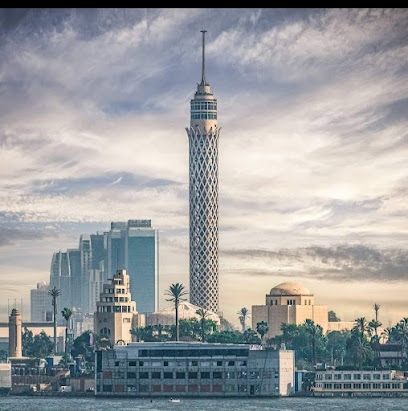
Al-Azhar Mosque
Discover Al-Azhar Mosque: A historic Cairo landmark, a beacon of Islamic learning, and a symbol of Egyptian heritage.
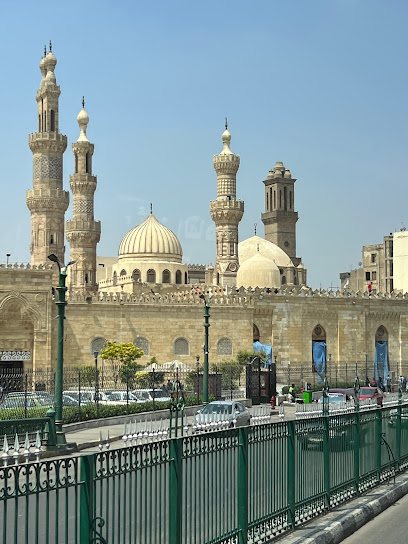
Al-Hakim Mosque
Explore the historic Al-Hakim Mosque in Cairo, a stunning example of Fatimid architecture and Islamic heritage on Al-Muizz Street.
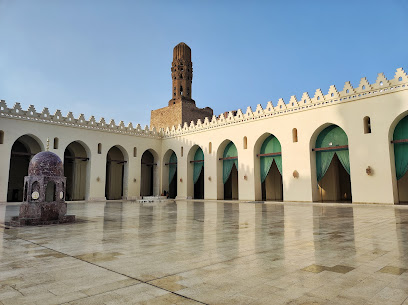
Bab al-Futuh
Explore Bab al-Futuh, a historic Cairo gate showcasing Fatimid military architecture and a glimpse into Egypt's rich past.
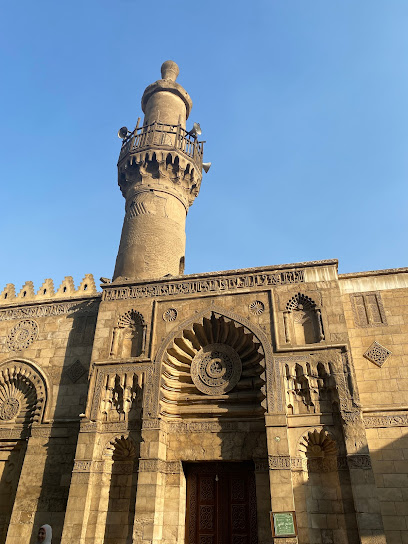
شارع المعز لدين الله الفاطمي
Step back in time on Al-Muizz Street, a vibrant open-air museum showcasing Cairo's Islamic heritage, architecture, and bustling culture.
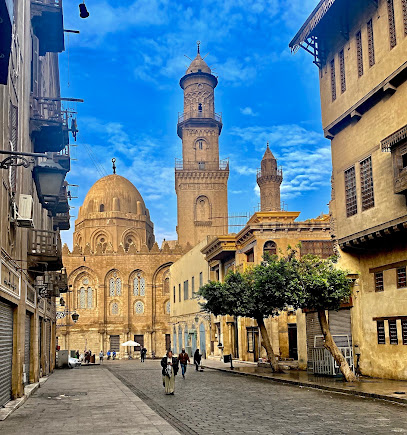
Museum of Islamic Art in Cairo
Explore a world-renowned collection of Islamic art at Cairo's Museum of Islamic Art, showcasing centuries of cultural heritage and artistic brilliance.
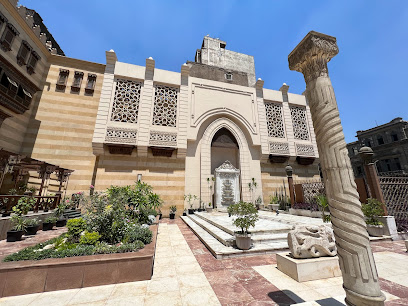
Ibn Tulun Mosque
Explore Cairo's oldest and largest mosque, a stunning example of Abbasid architecture with a unique spiral minaret and serene courtyard.
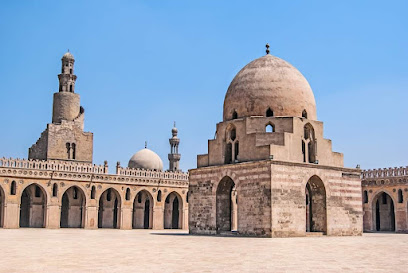
Zeinab Khatoon
Discover the enchanting Zeinab Khatoon House in Cairo: a historic Mamluk house with stunning architecture and a tranquil courtyard cafe.
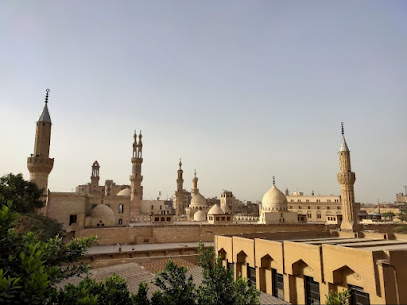
Bab El Nasr
Explore Bab El Nasr, a historic gate in Cairo's old city, showcasing Fatimid architecture and centuries of Egyptian history.
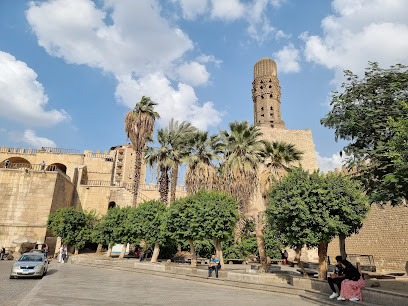
Bab Zuweila
Explore Bab Zuweila: A historic Fatimid gate in Cairo with stunning Islamic architecture and panoramic city views.
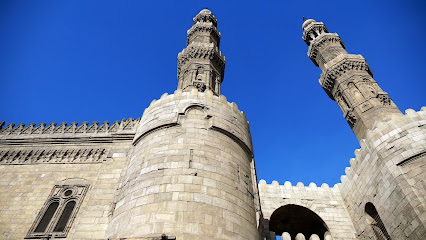
Al-Aqmar Mosque
Discover the Al-Aqmar Mosque in Cairo: A Fatimid architectural gem with a unique façade and rich history on Al-Muizz Street.
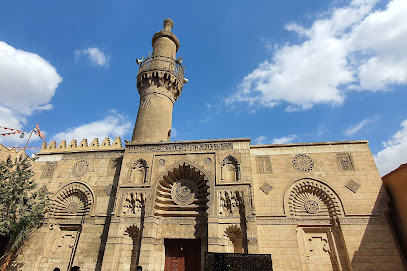
Mausoleum of Imam al-Shafi'i
Explore the Mausoleum of Imam al-Shafi'i, a hallmark of Ayyubid architecture and a tribute to Islamic scholarship in Cairo's City of the Dead.
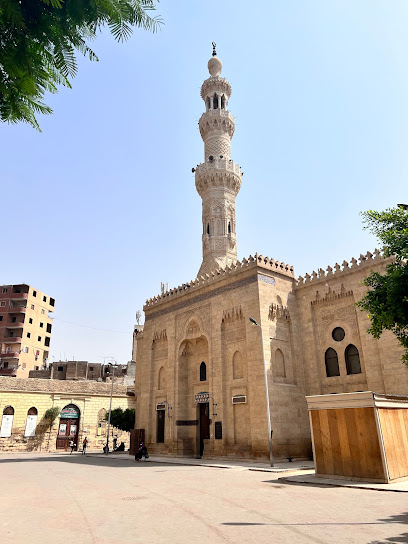
Unmissable attractions to see
Al-Azhar Park
Explore Al-Azhar Park, Cairo's green oasis with stunning views and rich cultural experiences, perfect for relaxation and exploration in the heart of the city.
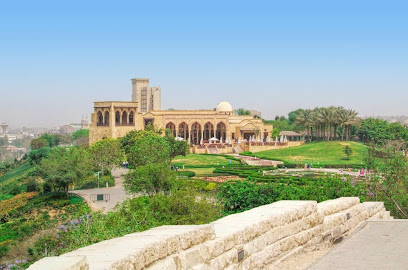
Abdeen Palace Museum
Explore the Abdeen Palace Museum, a stunning historical site in Cairo showcasing Egypt's royal heritage through exquisite artifacts and breathtaking architecture.
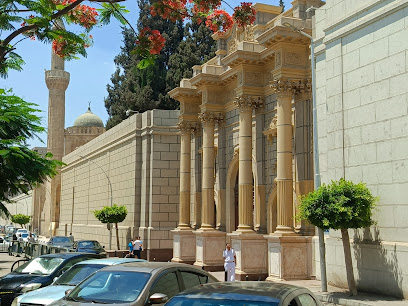
Bab al-Futuh
Explore Bab al-Futuh, Cairo's historical landmark, and delve into the rich tapestry of Egypt's Islamic heritage while enjoying stunning city views.
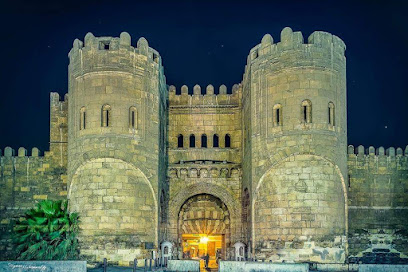
شارع المعز لدين الله الفاطمي
Explore the rich history and vibrant culture of Cairo on Al-Muizz Street, a UNESCO World Heritage site filled with stunning architecture and lively markets.
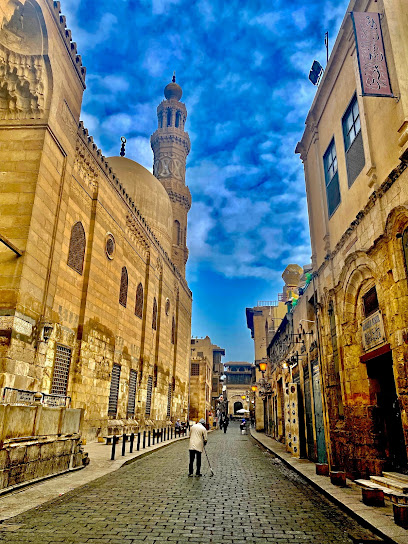
Zeinab Khatoon
Explore the rich history and vibrant culture of Cairo at Zeinab Khatoon, a must-see historical site that enchants every visitor.
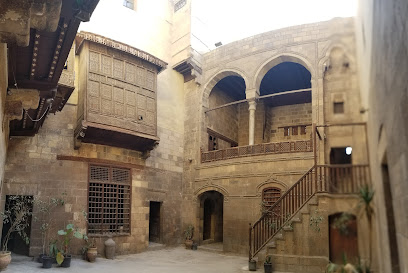
Bab El Nasr
Discover the majestic Bab El Nasr, an iconic historical landmark in Cairo showcasing stunning Islamic architecture and rich cultural heritage.
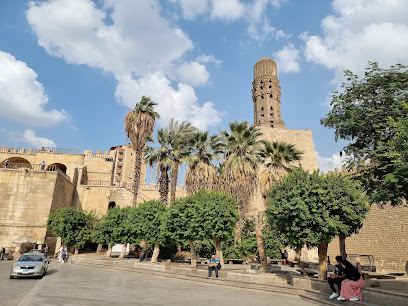
Essential places to dine
Eish + Malh
Discover Eish + Malh: Where Culinary Art Meets Vibrant Culture in Downtown Cairo.
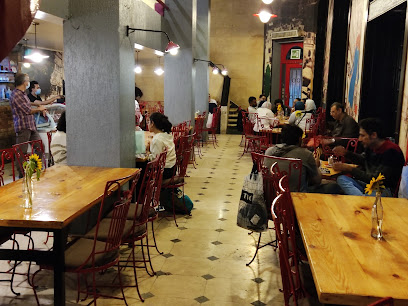
CaiRoma
Experience authentic Italian cuisine at CaiRoma in Cairo's Bab Al Louq district – where every meal is a celebration of flavor.
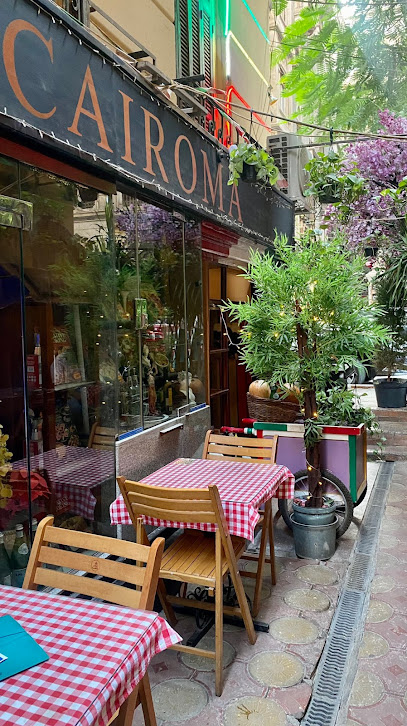
Cafe & Restaurant - Tekiyt Khan Khatun
Discover the authentic taste of Japan at Tekiyt Khan Khatun - A charming izakaya cafe in Cairo offering exquisite flavors and delightful ambiance.
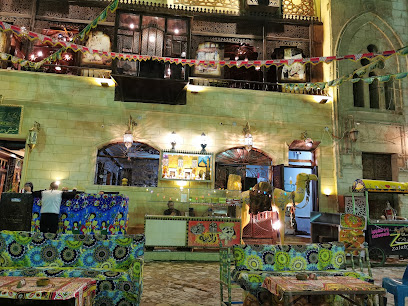
Gad
Experience the flavors of Egypt at Gad—where traditional cuisine meets fast food convenience in El Gamaliya.
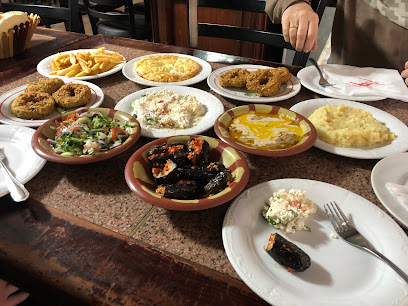
Zeeyara Restaurant
Discover authentic Egyptian cuisine at Zeeyara Restaurant with breathtaking views of the pyramids in El Gamaliya.
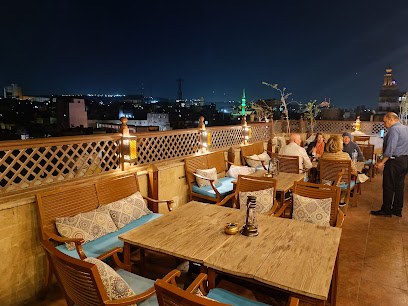
The Citadel Restaurant
Experience authentic Egyptian cuisine at The Citadel Restaurant in Cairo - a culinary gem blending tradition and flavor.
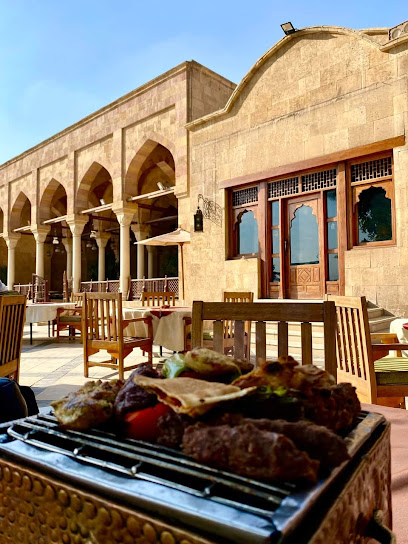
Abou Ahmed
Experience the authentic taste of Egypt at Abou Ahmed – a must-visit restaurant in Cairo's Al Gamaleyah district.
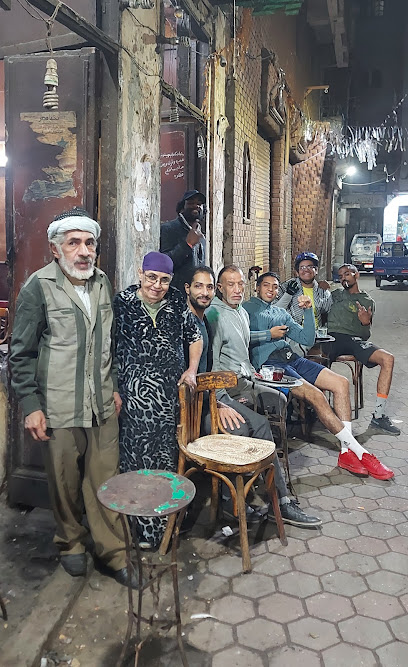
Alain Le Notre
Experience authentic Egyptian barbecue at Alain Le Notre, where flavor meets tradition in the heart of Cairo.
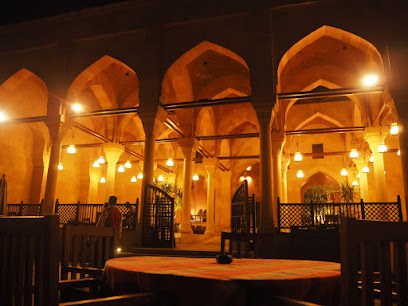
Emporio CG
Discover authentic Egyptian flavors at Emporio CG, where culinary tradition meets modern elegance in the heart of Cairo.
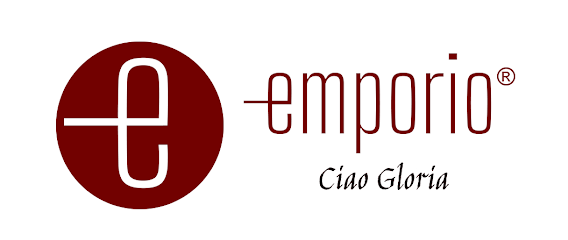
مطعم الكبيرة
Experience authentic Egyptian breakfast delights at مطعم الكبيرة in El Gamaliya, where tradition meets flavor in every bite.

Markets, malls and hidden boutiques
Khan el-Khalili
Explore the vibrant Khan el-Khalili Bazaar in Cairo for an authentic shopping experience filled with Egyptian crafts, history, and culture.
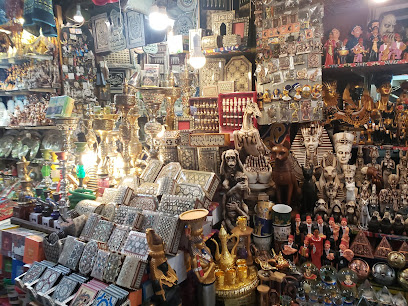
Gift Shop Bazaar
Explore a vibrant selection of authentic Egyptian souvenirs at Gift Shop Bazaar in Cairo, a treasure trove of cultural artifacts and unique gifts.
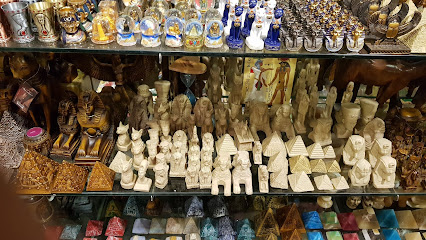
Fair Trade Egypt
Explore Fair Trade Egypt for unique handicrafts that celebrate local artisanship and sustainable practices in the heart of Cairo.
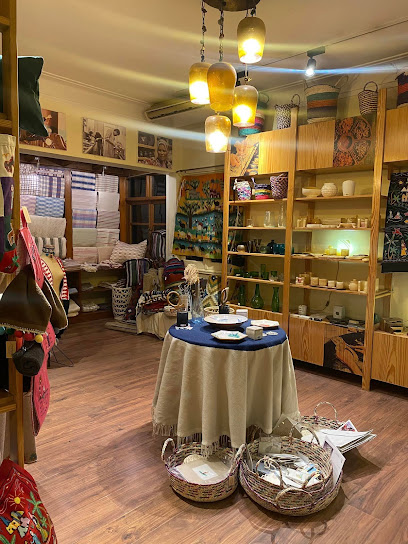
Oum el Dounia Gallery - ام الدنيا جاليري
Explore the charm of Egypt through unique gifts, books, and handicrafts at Oum el Dounia Gallery in the heart of Cairo.
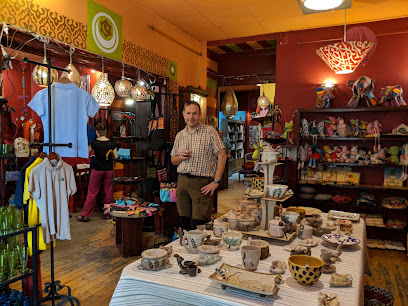
Khan Al Khalili Center
Discover the vibrant charm of Khan Al Khalili Center, a shopping paradise rich in culture, crafts, and culinary delights in the heart of Cairo.
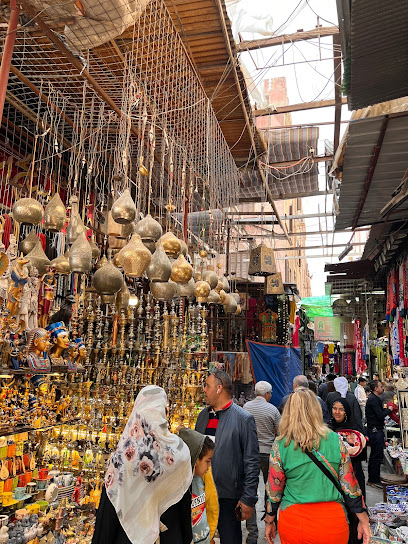
Nomad Gallery - Zamalek Main Branch
Discover the rich cultural heritage and exquisite craftsmanship at Nomad Gallery in Zamalek, a treasure trove of jewelry, antiques, and handmade crafts.
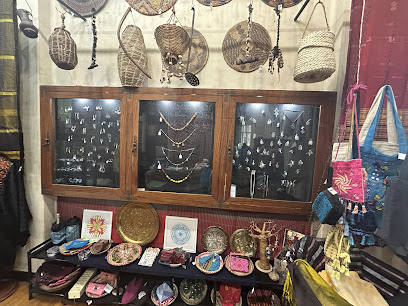
Jozee Boutique Zamalek
Explore the vibrant fashion scene at Jozee Boutique in Zamalek, Cairo, where style meets elegance in a unique shopping experience.
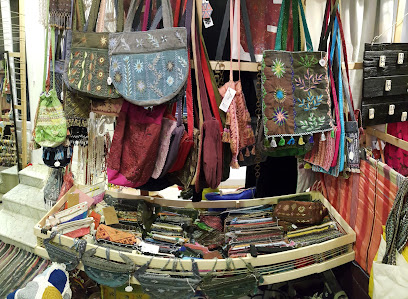
Egyptian Museum Gift Shop
Discover unique souvenirs at the Egyptian Museum Gift Shop, where history meets craftsmanship in the heart of Cairo.
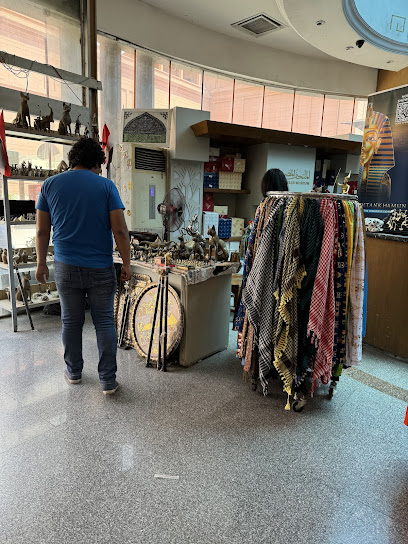
إيجيبت بازار - Egypt Bazaar
Explore Egypt Bazaar in Cairo: A vibrant shopping haven for authentic souvenirs and cultural treasures.
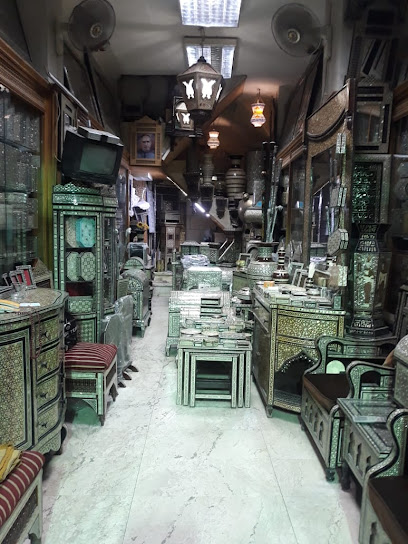
Egyptology store
Explore the Egyptology Store - Your one-stop destination for unique Egyptian souvenirs and gifts in the heart of Cairo's historic Khan el-Khalili market.
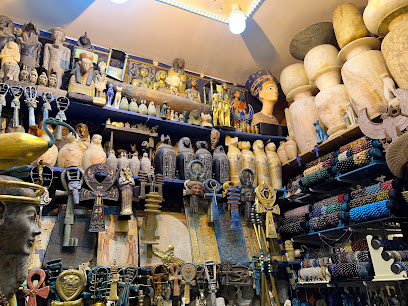
Essential bars & hidden hideouts
Cap D'or
Experience the vibrant nightlife at Cap D'or, a lively bar in Cairo, where local charm meets a great selection of drinks and entertainment.
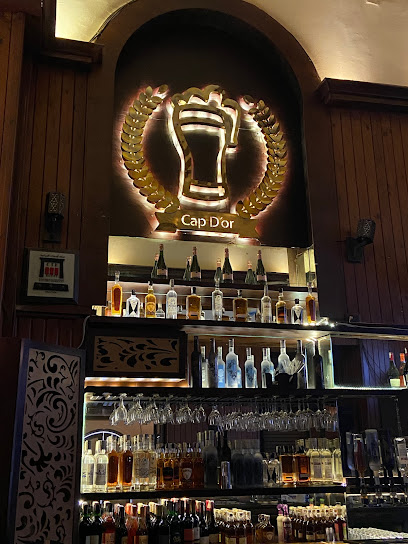
Odeon Palace Bar
Experience the vibrant ambiance and diverse menu at Odeon Palace Bar, a perfect retreat for tourists in the heart of Cairo.
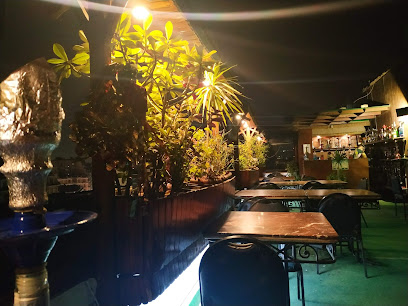
Stella Bar
Experience the essence of Cairo's nightlife at Stella Bar, a lively spot in Bab Al Louq with a great atmosphere and affordable drinks.
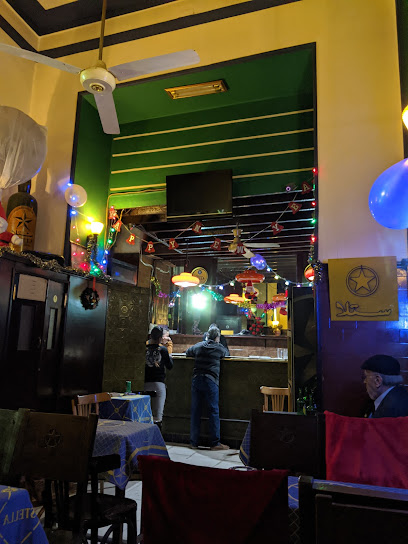
جامايكا
Discover the vibrant nightlife of Jamaica in Cairo, where cocktails, music, and a lively atmosphere await every visitor.
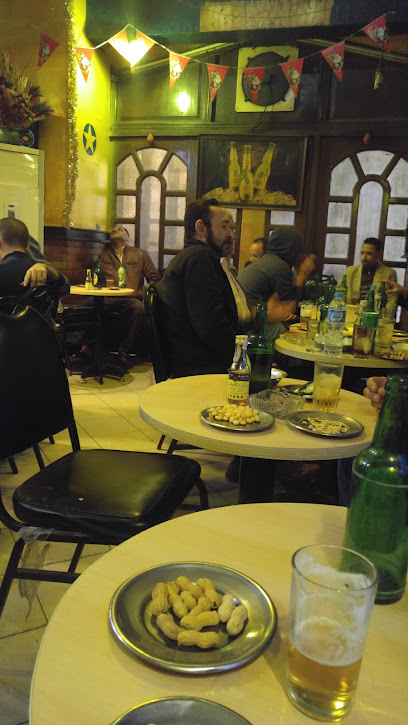
LE KAF DE CORANTOS BAR
Discover the charm of Le Kaf de Corantos Bar, a vibrant spot in Downtown Cairo for drinks, socializing, and local entertainment.
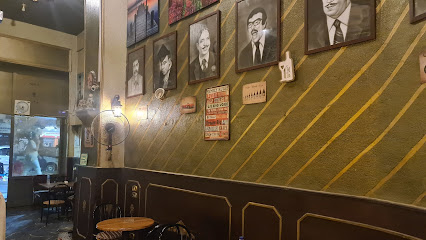
Abu saaed
Discover the lively spirit of Cairo at Abu Saaed, a bar where traditional flavors meet vibrant nightlife.
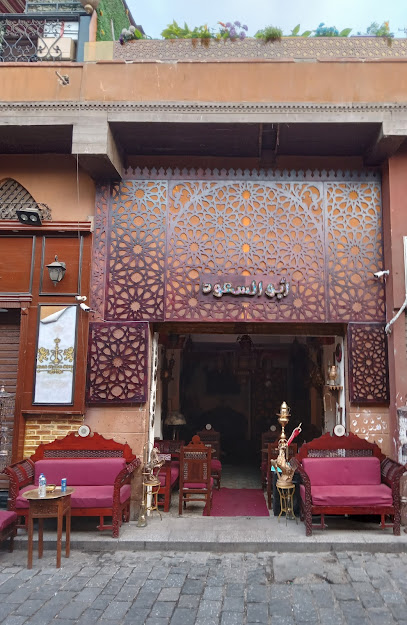
Rumah abbo
Discover Rumah Abbo: A vibrant bar in Al-Darb El-Ahmar offering an authentic taste of Cairo's nightlife and rich local culture.
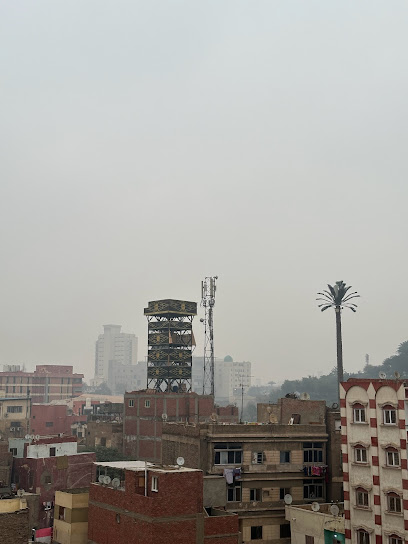
X-tètika Bar & Grill
Experience the flavors of Egypt at X-tètika Bar & Grill, where culinary tradition meets contemporary dining in the heart of Cairo.

Ьалвлв
Discover the lively ambiance and authentic Egyptian nightlife at Ьалвлв, a must-visit bar in El Gamaliya, Cairo.

رمضان توتى
Discover the vibrant nightlife of Cairo at Ramadan Toti, blending local flavors and a lively atmosphere for an unforgettable experience.

Local Phrases
-
- Helloمرحبا
[marhaba] - Goodbyeوداعا
[wada'an] - Yesنعم
[na'am] - Noلا
[la] - Please/You're welcomeمن فضلك
[min fadlak] - Thank youشكرا
[shukran] - Excuse me/Sorryعذرا
[a'zra] - How are you?ازيك؟
[ezayak?] - Fine. And you?تمام. وانت؟
[tamam. w-inta?] - Do you speak English?تتكلم انجليزي؟
[tetkalem ingilizi?] - I don't understandانا مش فاهم
[ana mish fahem]
- Helloمرحبا
-
- I'd like to see the menu, pleaseعايز اشوف القائمة من فضلك
[a'ayz ashuf el-qaima min fadlak] - I don't eat meatانا ما بأكلش لحم
[ana ma ba'akelsh lahm] - Cheers!في صحتك
[fi sahtak] - I would like to pay, pleaseعايز ادفع من فضلك
[a'ayz adfa' min fadlak]
- I'd like to see the menu, pleaseعايز اشوف القائمة من فضلك
-
- Help!النجدة!
[al-najda!] - Go away!اروح بعيد!
[erouh ba'id!] - Call the Police!اتصل بالشرطة!
[etssel bel-shurta!] - Call a doctor!اتصل بطبيب!
[etssel betebib!] - I'm lostانا ضايع
[ana dayi'] - I'm illانا مريض
[ana mareed]
- Help!النجدة!
-
- I'd like to buy...عايز اشتري...
[a'ayz ashtari...] - I'm just lookingانا بشوف بس
[ana beshuf bas] - How much is it?بكام؟
[bikam?] - That's too expensiveده غالي اوي
[da ghali awe] - Can you lower the price?ممكن تنزل السعر؟
[momken tenzel el-sa'er?]
- I'd like to buy...عايز اشتري...
-
- What time is it?كام الساعة؟
[kam el-sa'a?] - It's one o'clockالساعة واحدة
[el-sa'a wahda] - Half past (10)نص العشرة
[nis el-ashara] - Morningصباح
[sabah] - Afternoonظهر
[dhuhr] - Eveningمساء
[masa'] - Yesterdayالامس
[al-ams] - Todayاليوم
[al-yom] - Tomorrowغدا
[ghadan] - 1واحد
[wahid] - 2اثنين
[ithnayn] - 3ثلاثة
[thalatha] - 4أربعة
[arba'a] - 5خمسة
[khamsa] - 6ستة
[sitta] - 7سبعة
[saba'a] - 8ثمانية
[thamanya] - 9تسعة
[tis'a] - 10عشرة
[ashara]
- What time is it?كام الساعة؟
-
- Where's a/the...?وين ال...؟
[wein el...?] - What's the address?ايه العنوان؟
[eh el-ana?] - Can you show me (on the map)?تقدر توريني (على الخريطة)؟
[taqdar tawrini (ala el-khari'ta)?] - When's the next (bus)?متى الباص الجاي؟
[meta el-bas el-gay?] - A ticket (to ....)تذكرة (الى ...)
[tazkara (ila ...)]
- Where's a/the...?وين ال...؟
History of Islamic Cairo
-
Islamic Cairo's history begins with the founding of Cairo in 969 AD by the Fatimid dynasty, who established it as the center of their empire. The city was designed to reflect Islamic principles and served as a hub for trade, culture, and religion. Its layout included narrow streets and bustling markets, which remain characteristic of Islamic Cairo today.
-
From the 13th to the 16th centuries, the Mamluks ruled Egypt and significantly influenced Islamic Cairo. They constructed magnificent mosques, madrasas, and monuments that define the skyline today, such as the Mosque of Sultan Hassan and the Al-Rifa'i Mosque. This period marked a flourishing of art, architecture, and scholarship, solidifying Cairo's status as a leading center of Islamic civilization.
-
In the 16th century, the Ottoman Empire took control of Egypt, bringing with it a new wave of architectural and cultural developments. Islamic Cairo saw the construction of new mosques and the expansion of existing ones, along with enhancements to the urban landscape, including the famous Khan el-Khalili market. The Ottomans also influenced local customs and traditions, blending them with their own.
-
The 19th century brought significant changes to Islamic Cairo as part of Egypt's modernization efforts under Muhammad Ali Pasha. Infrastructure improvements, such as the introduction of European-style boulevards and modern amenities, began to alter the traditional landscape. However, the cultural heart of Islamic Cairo continued to thrive, preserving its rich heritage amidst the changes.
-
In the late 20th century, efforts to preserve the historical and cultural significance of Islamic Cairo intensified. Organizations and local authorities began restoration projects to protect key monuments and neighborhoods. The area was recognized for its UNESCO World Heritage status, emphasizing the importance of maintaining the unique historical character of Islamic Cairo amidst urban challenges.
Islamic Cairo Essentials
-
Islamic Cairo is easily accessible from other neighborhoods in Cairo. If you're coming from downtown Cairo, take the Metro Line 1 to the Sadat station, then transfer to the Metro Line 3 at Ataba station to reach the Abdel Moneim Riad station, which is close to the Islamic Cairo area. Alternatively, taxis and ride-sharing services like Uber are widely available and convenient for direct travel. Buses also operate from various parts of the city, but they may take longer due to traffic.
-
Islamic Cairo is best explored on foot due to its narrow streets and rich historical sites. However, if you're looking for other options, local minibuses and microbuses can be used for short distances. Taxis and ride-sharing apps like Uber are also a great choice for longer trips within the neighborhood. Bicycle rentals are available at certain points, offering a unique way to navigate the area.
-
Islamic Cairo is generally safe for tourists, but it’s wise to stay aware of your surroundings, especially in crowded markets like Khan el-Khalili. Areas around the Citadel and some neighborhoods further outside the main tourist paths may experience higher crime rates, so avoid wandering alone at night in those places. Keep your belongings secure and be cautious of pickpockets in busy areas.
-
In case of an emergency, dial 122 for police assistance or 123 for an ambulance. Local hospitals are available, but it’s advisable to have travel insurance that covers medical emergencies. Be aware of the nearest pharmacy locations for minor health issues; they are commonly found throughout the neighborhood.
-
Fashion: Do dress modestly, particularly when visiting mosques or religious sites. Avoid revealing clothing. Religion: Do respect local customs; remove shoes when entering mosques, and avoid eating in front of people during Ramadan. Public Transport: Do be polite and offer your seat to the elderly. Don't eat or drink on public transport. Greetings: Do greet locals with a smile and a handshake. Don't use overly casual language or gestures. Eating & Drinking: Do try local cuisine and accept food offers graciously. Don't refuse hospitality, as it is considered rude.
-
To experience Islamic Cairo like a local, visit the street vendors and try traditional foods such as koshari and falafel. Spend time in the local coffee shops, where you can engage with residents and enjoy the atmosphere. Explore lesser-known sites, such as hidden mosques and historical houses, to gain a deeper understanding of the area’s rich history. Participating in a guided walking tour can also enhance your experience and provide valuable context.
Trending Landmarks in Islamic Cairo
Nearby Cities to Islamic Cairo
-
Things To Do in Zagazig
-
Things To Do in Tanta
-
Things To Do in Beni Suef
-
Things To Do in Ismailia
-
Things To Do in Suez
-
Things To Do in Damietta
-
Things To Do in Port Said
-
Things To Do in Alexandria
-
Things To Do in Minya
-
Things To Do in Asyut
-
Things To Do in Dahab
-
Things To Do in Eilat
-
Things To Do in Beersheba
-
Things To Do in Aqaba
-
Things To Do in El Gouna













